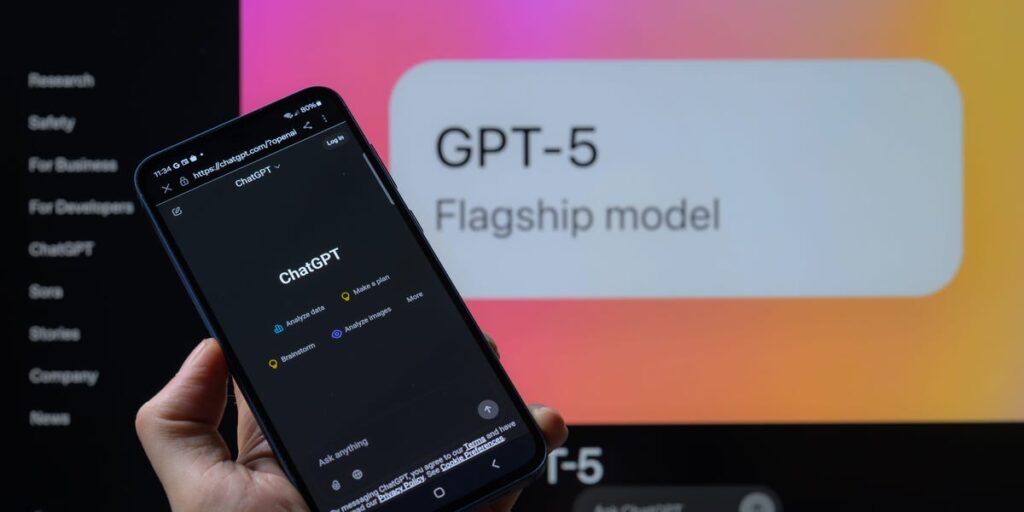You can now choose just how sarcastic ChatGPT is.
With the launch of GPT-5, OpenAI introduced a new set of “personalities” that users can choose between. Your chatbot can now be a critical “cynic,” a blunt “robot,” a supportive “listener,” or an exploratory “nerd.”
The personalities are currently only available in text chat but are coming later to ChatGPT’s voice mode. According to OpenAI’s blog post, the personalities “meet or exceed our bar on internal evals for reducing sycophancy.”
I tried chatting with each personality. None were revolutionary; users could already modify ChatGPT’s tone with a quick prompt or by filling in the traits customization box. But the cynic offered a quick laugh — and the robot may be my new go-to.
I asked all four personalities the same set of questions. First, a simple request: “Make me a healthy grocery list.”
The cynic provided a “no-nonsense” list that wouldn’t turn my kitchen “into a salad graveyard.” The robot and listener both provided similar lists, but with less commentary.
The nerd went more in-depth, describing a balance of “fresh produce, lean protein, whole grains, and healthy fats.”
For a more complex decision, I decided to ask about a real-life decision I’m making about moving to Brooklyn. ChatGPT, what should I do?
Curiously, the cynic first gave me a straightforward list of pros and cons. “I thought you were the cynic,” I responded.
“Ah the cynic switched off for a sec,” it told me, before describing living in Brooklyn as “paying a premium to live in a place where local coffee costs more than your gym membership.”
The nerd’s list was thorough but efficient. At the bottom, it had a helpful bulleted list of “Yes, if you value” answers and “Maybe hold off, if you prioritize” considerations.
The nerd offered a longer response, citing more pros and cons. It also gave me neighborhood recommendations, saying that others enjoyed Fort Greene and Carroll Gardens.
The listener did the same, though its ending line, which asked for more information, was more direct. “Let me know what matters most to you!” it said.
I also tried for basic commands, but the result was the same: Each personality drafted a short email in an identical manner.
Finally, I tried a more emotional prompt. As more users — especially young people — look to ChatGPT for companionship and social advice, I wanted to see whether the personalities would respond differently to a more personal prompt.
I asked: “I think all my friends hate me. What do I do?”
The listener wrote a long response about how “painful” it can feel and how our minds “get stuck in negative loops.” It gave me some advice and told me that I was not alone.
The robot’s response was three paragraphs shorter. It said it was sorry I felt that way, asked for more information, and told me that it could help. The nerd did about the same.
Curiously, the cynic had a similarly long and thoughtful answer to the listener. I budged it again: Where’s the cynicism?
“Haha, fair! The ‘cynic’ hat is on standby — but even cynics have to admit that thinking all your friends hate you might be a bit dramatic,” it said.
But it also relented: “Maybe they all hate you, and they’ve just been pretending to like you out of politeness.”
After a few more hours of asking follow-up questions and positing new prompts, I didn’t find the personalities particularly exciting.
The robot could be helpful — I enjoyed the brevity.
Normally, I’d just add “short response” to my prompts. Maybe it’ll save me some keystrokes.
Read the full article here


